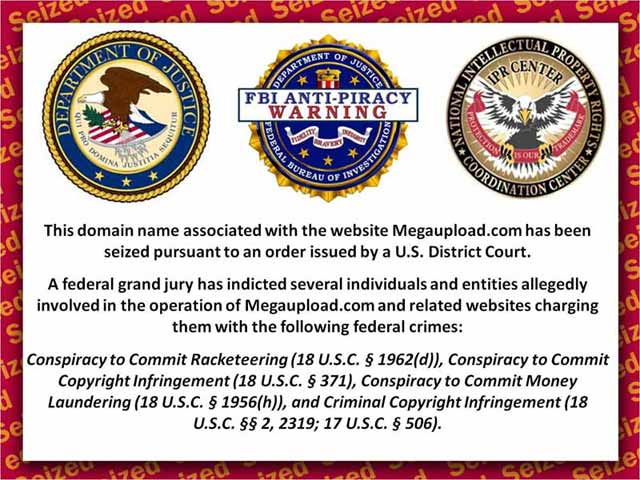Let’s get this straight: this is not an article about SOPA.
Within the past two months, three major file sharing websites (Megaupload, BTJunkie and FileSonic) either have been shut down or have ceased function in an attempt to prevent the illegal downloading of music. Although this may make it more difficult to download pirated music, it will also harm the music industry.
Anyone with a computer and an Internet connection can easily share files with the rest of the world. Once a file exists on a user’s computer, they are able to upload it to a multitude of different websites, most free of charge. Once said file is uploaded, it is available for download to anyone who searches online or has the proper URL. This concept was appealing to everyone, until they started losing money.
The legal use for file sharing is to help businesses store and share information with each other (i.e. spreadsheets, presentations, etc.). To put it as simply as possible, these websites serve as an online flash drive, where any file can be downloaded anywhere.
Here’s where things get illegal: instead of using these sites to share business information, they are now being used to share music. People quickly learned that these sites could be used to share their mixtapes and favorite songs without ever having to leave their homes, or burn CDs. This brings us to where we are today. Basically, every album or song that you might want is available for free download, and there is huge portion of people that take advantage of this.
To be brutally honest, in this day and age there is a group of people that simply isn’t willing to pay for music. Once people get used to having something for free, they aren’t going to be willing to suddenly start paying. It’s like those fake Facebook pages that threaten, “In 30 days Facebook will start charging all of its users.”
If that happened, the majority of users would log off and search for another website that fulfills their social networking needs. Shutting down file sharing websites isn’t going to increase record sales; it will have a reverse effect.
Although it is morally wrong that people are downloading music without paying, that is where we are, and things aren’t going to change. By refusing to accept this, record labels are hindering undiscovered new artists and the music industry. For example: say I start a band, and want to get my music out there. How do I do so? Make a demo tape and hand it out to my friends at school? No. I upload it to a file sharing website, so people can download it, then pass it along to their friends. In a society where only a small amount of music exists on the radio, and on music television, new artists rely on file sharing to gain exposure. Once I stopped relying on iTunes’s short samples of songs, and their “Recommended Song of the Week,” I discovered music I wouldn’t have otherwise.
One might ask: “If record labels embraced file sharing, how would anyone make any money?” Record labels should view file-sharing as a sort of strange investment. Restaurants give away free food all the time; why can’t labels do the same with music? By allowing music to circulate illegally, it will in turn gain attention. People will post it on their blogs, play it at parties, and book these artists for concerts. In today’s world, it won’t take long for the good music to break into the mainstream, which is where the money starts getting made.
Artists will gain exposure through various television appearances and magazine write-ups, which will grab the attention of people who do pay for music. Artists and the labels they are under are able to make money off of their music by simply allowing a portion of society to download it for free.
Now the question is, “How do labels make money off of this portion of society that doesn’t pay for music?” The answer lies with Steve Jobs. Before he died, he was working on a new type of sound file with a quality much higher than the current MP3. The only flaw with file-sharing is storage space. Because these websites limit the amount of storage space for each account, songs and albums are often compressed, lowering the sound quality.
Regardless of what company continues this project, even the most steadfast illegal downloaders have to agree that songs with a quality exponentially better than MP3 are definitely something worth paying for.
Even though it is morally and ethically wrong that people are able to download music without paying, that is the way things are. Instead of ruining a great idea, record labels need to change with the times, and find new ways to make money off of their music. If file sharing websites continue to get shut down, record sales will not go up, and many up-and-coming artists will not receive the attention needed to make it in the music industry.


















